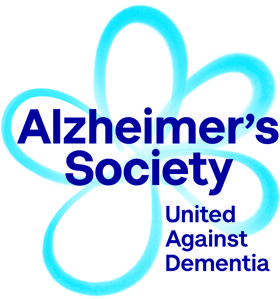
Published: 26/07/2023
When should I be concerned about my elderly parent?
As our parents age, it's normal to start worrying about their health and wellbeing. But how do you know when those concerns are warranted? In this blog post, we'll explore some of the signs that indicate your elderly parent may need extra care and support.
1. When they doing things they used to enjoy
This is a common phenomena, particularly as we get older - people may develop different interests and hobbies, or lose the motivation to go out and do things they used to enjoy. There can be many reasons contributing to this shift in behaviour.
There are many reasons they might stop doing activities they once loved. They might be finding it more difficult to get around, or they might be feeling confused and forgetting things they have scheduled.
They might also be struggling while living alone and could be suffering from depression. All of these factors are situations where you would want to intervene to make sure your parent is well-cared for.
2. If they're not eating or drinking as much as usual
If your loved one isn't eating or drinking their usual amount, it's important to take notice. This could indicate an underlying health concern that should be addressed. Make sure to provide them with a variety of appealing and nutritious options for meals and snacks, as well as plenty of fluids throughout the day.
If the decline in food and beverages continues over several days, it's wise to consult a doctor as soon as possible since they will quickly begin to lose strength. Paying attention to changes in your family member's diet can help spot health conditions early on and open the door to treatment.
If they are struggling to make their own food, it might be time to think about home help.
3. If they're losing weight or looking unkempt
If you've noticed a loved one losing weight or looking unkempt, they may be struggling with a mental health issue. It can be difficult to reach out but it's important that they know that someone is there for them and willing to listen.
Offer your support without judgement and encourage them to seek help from a professional if necessary. Mental health issues are common and there are supports and treatments available for anyone struggling with their mental wellness. Showing someone you care can make all the difference in their journey of recovery.
If your parent isn’t taking care of themselves like they used to, it could be that they are struggling to get around the house or they are becoming more forgetful. Speak to a healthcare provider to determine if there is anything they can do to help.
4. If they're having trouble keeping up with their housework
Household duties are often the first thing to go when an elderly person is struggling to keep on top of things. They might hide this well in the beginning, but the signs that things aren’t getting done will soon become apparent.
Hiring a cleaner to help with household tasks is a great place to start if you don’t have the time to visit and keep on top of things. You could also ask neighbours to help with things like putting the bins out.
5. If they seem confused or disoriented
If you are engaging with someone who appears confused or disoriented, it is important to remain patient and offer help in a respectful manner. Listening actively and paying close attention will assist in better understanding the person's needs.
Showing compassion and understanding can help the individual feel supported, valued and less anxious. It’s easy to get frustrated with a parent for their confusion, because we are so used to them being in control and lucid. It is essential to pay attention to their body language and facial expressions while they communicate; this could provide useful information and insight into what the person may be feeling.
Encouraging them to talk openly about their experience will foster an atmosphere of collaboration, while offering helpful advice or resources can contribute towards a more successful engagement.
6. If they're withdrawn and don't want to see people anymore
If your loved one seems to be withdrawing from activities and people they normally enjoy, it is important to take notice. This can be a sign of something more serious than just feeling down; it could be a sign of depression.
It is important to talk to them about what they are going through and offer support in any way that you can. Remember to be patient and recognize that they may not want to talk right away, but expressing your understanding and support can make a world of difference in the long run.
Next Steps
These are only a few of the signs that may indicate your elderly loved one is in decline and needs additional care. While it's normal for seniors to experience some changes as they age, sudden or drastic changes can be a sign of something more serious.
If you're concerned about your loved one's health and wellbeing, talk to their doctor or reach out to a professional caregiver who can provide support and assistance. We can also arrange a home visit to determine if daily personal care or live-in care could give your parent the support they need to continue living independently.
If you'd like to explore the possibility of introducing a carer or even a simple companionship visit to your home, get in touch with our friendly team today. We care for people in Camden, Hampstead, Golders Green and surrounding areas.
Our friendly and supportive team can be reached by calling on 0203 921 1111 or by emailing us at camden.hampstead@rightathome.co.uk

